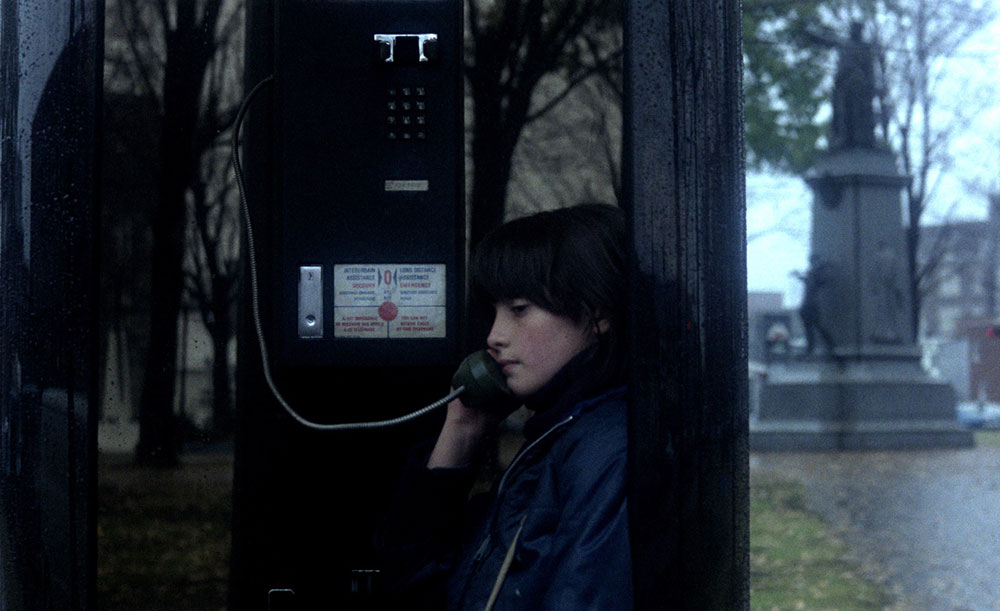Good Riddance (1980) drops into a typical scene in the life of a troubled Québécois family in which roles are troublingly blurred and money is constantly scarce. Michelle (Marie Tifo), tween Manon (Charlotte Laurier), and the strapping Ti-Guy (Germain Houde) are all chopping wood when a cop pulls into their sprawling working-class yard. At the wheel is Maurice (Roger Le Bal), who playfully chastises Michelle’s bralessness by saying, “I didn’t raise you that way.” We later learn that Manon is Michelle’s delinquent daughter; Ti-Guy is Michelle’s brother, whose development was delayed by a childhood case of meningitis and therefore relies on Michelle for shelter and motherly care; and Maurice is Michelle’s exasperated older boyfriend and the father of her unborn child. The trio eke out a pittance by chopping wood and hauling it to upper-class bungalows in their deteriorating van; their meager earnings are swiftly squandered on Ti-Guy’s beer runs and barroom brawls. Between rocking her brother to a drunken sleep and attempting to wrest her jealous daughter from her bed, in addition to repairing flat tires and fending off aggressive flirtations from her former lover, Michelle remains the stable core of a familial bubble on the brink of bursting apart.
The first screenplay by acclaimed Québécois writer Réjean Ducharme and the third feature from Canadian director Francis Mankiewicz, Good Riddance presents a relentless portrait of precarity in which each small tragedy that befalls Michelle’s family builds toward the horrors of the next. The characters’ financial and emotional insecurity creates an underlying sense of impending doom, imbuing what are essentially ordinary occurrences in a struggling family’s life with dramatic suspense. That suspense is interrupted by moments of almost breathtaking simplicity and beauty, like Maurice’s pure joy upon test-driving a child’s bike or a few laughter-filled rounds at the local skating rink. Laurier’s performance as Manon—a shit-talking, cigarette-smoking ruffian desperate for her overworked mother’s attention—is both beguiling and unnerving. She manipulates Michelle by disappearing for days at a time and calling from payphones to deliver florid speeches inspired by her obsessive reading of Emily Brönte’s Wuthering Heights.
One possible reading of Good Riddance sees the queasily thin line between familial bonds and crippling co-dependence as symbolic of the province’s uncertainty between the Quiet Revolution in 1960—which secularized most of Quebec’s government and cultural institutions, and inspired a new cinematic wave committed to representing a distinctly Québécois identity—and the 1980 Quebec independence referendum, in which the question of the province’s sovereignty from Canada received a majority “no.” The bleak tragedy and anxiety running through Good Riddance suggests that Quebec’s continued presence within the family of Canada was detrimental to the potential nation-state, yet Québécois voters were unwilling to sever ties. As Michelle tells Maurice, who’s grown weary of hearing about Ti-Guy and Manon, “They’re all I have… All my father left me was an old snowplow and a half-paid house the bank would love to foreclose on.”
Good Riddance screens tonight, April 15, at Anthology Film Archives on 35mm as part of “Quebec-Core.”



